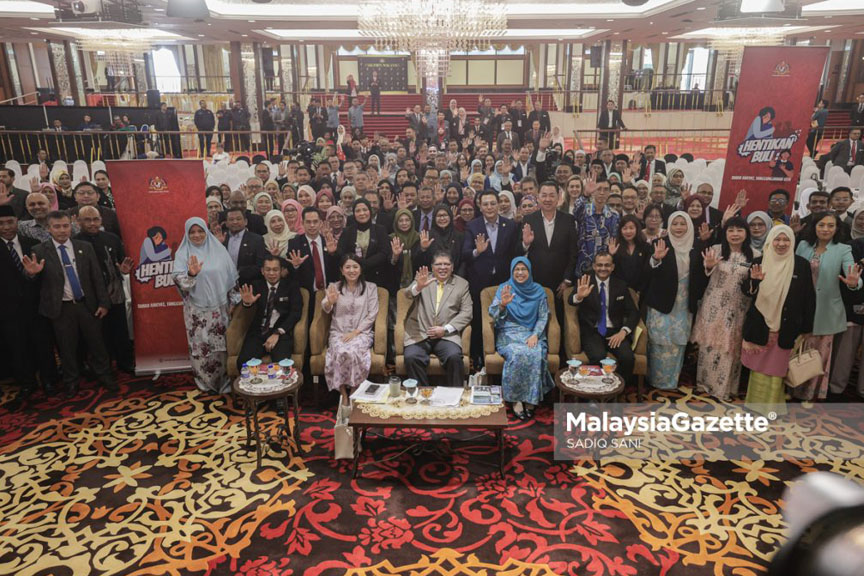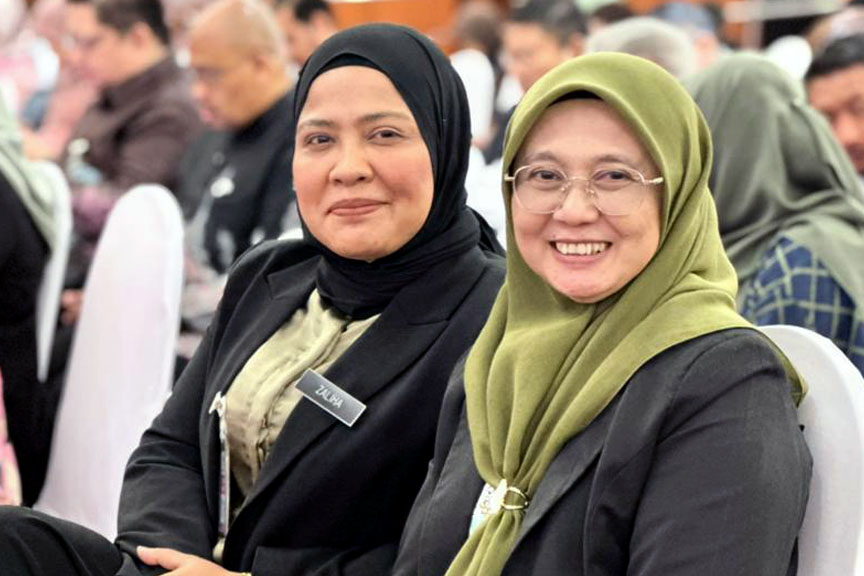APU’s Crisis Management and Communications Lecturer, Zaliha Idris, presented a strategic plan to combat bullying at a parliamentary town hall. Her proposal included creating local task forces, enforcing a swift crisis response, and using a national data hub to inform policy, underscoring APU’s commitment to addressing critical social issues.

An expert from Asia Pacific University of Technology & Innovation (APU) is taking a stand against bullying, offering a comprehensive plan to tackle the issue at a recent parliamentary town hall.
Ms Zaliha Idris, a lecturer in Crisis Management and Communications at APU’s School of Marketing and Management (SoMM), shared her innovative proposals at the ‘Stop Bullying: The People’s Voice, Our Responsibility’ town hall, held on 10th September 2025.
Organised by the Parliamentary Special Select Committee on Women, Children and Community Development, the session saw the Speaker of the Dewan Rakyat, Tan Sri Dr Johari Abdul, emphasise that bullying must be taken seriously due to its lasting mental toll on victims.
The event brought together Member of Parliament, community leaders, and civil society groups, including the Parent-Teacher Association (PIBG).
Ms Zaliha, who also serves as a community member for the Parent, Community, Private Involvement (PIBKS) under the Bangsar Pudu District Education Office, presented her official proposal, ‘Combating Bullying in Schools and Communities’, to MPs and the special select committee.
A new vision for combating bullying

She stressed the need for a holistic and integrated approach to combating bullying such as anti-bullying 360° taskforces, strict crisis management, digital counter-narrative, and mobile psychological support.
Ms Zaliha proposed creating these taskforces at every District Education Office. They would unite schools, PIBG, local communities, NGOs, and the private sector to conduct behavioural audits, establish secure reporting channels, and enlist alumni as peer mentors.
She highlighted the need to enforce the Crisis SOP 1:3:7, which dictates that every bullying incident must be reported within one day, investigated within three days, and have action taken within seven days.
To ensure this is met, she suggested a Communication Desk in every school, with discipline teachers and counsellors receiving regular training in crisis communication and management.
Recognising the role of social media, she called for a Digital Counter-Narrative Taskforce.
This group, involving various government bodies and researchers, would monitor and remove bullying content online. The taskforce would also run impactful campaigns with youth influencers using hashtags like #BullyingIsnotAJoke and #WeHearWeProtect to shift the public’s perception of bullying as harmless fun.
To support long-term policymaking, Ms Zaliha proposed creating a National Anti-Bullying Observatory (NABO).
This central data hub would collect and analyse bullying cases from various sources to ensure policies are based on solid evidence.
Her final proposal was for Mobile Psychosocial Intervention Units. These units would provide immediate psychological support to victims in severe cases, helping to reduce trauma and rebuild trust within schools and communities.
“Bullying is not a harmless joke or a rite of passage. It is a social crime that leaves lasting scars,” Ms Zaliha added, “If we fail to act now, we risk raising not only a traumatised generation but one that normalises violence as a way to gain power.”
Her participation in the town hall highlights APU’s commitment to contributing expert solutions to national discussions on critical social issues.
While expert guidance is crucial, this event reminds us that the prevention of bullying is a multifaceted issue that ultimately requires a collective societal effort involving individuals, communities, and institutions working together.

News & Happening
Download e-Brochures
Intake Calendar
Want to know more ?
Let’s Connect